Have you ever lost something precious? If you have, chances are that thing (be it a home, a dream, or even a person) has already flashed into your mind. And maybe, too, a memory of who you were before the loss.
When I met my husband, we were teenagers, and it was some kind of wonderful unfolding. Truly filmworthy. Almost disgustingly so.
I was spending six months in England after having my heart broken by my high school sweetheart. I saw this beautiful boy on a train and ran into him again at the local pub. Our eyes kept locking, but we said nothing. Until months later, a mutual friend introduced us, and the rest is filled with walks by the lake, ice skating, trips to art galleries and castles.
My own break-up and my parents’ traumatic divorce had – I thought – nailed the coffin shut on my romantic view of the world. But this sweet, beautiful boy from England stretched his hand out to me and gave me permission to hope again.
Over the next eight years, we navigated the endless labyrinth of bereavements and health struggles and hurdle after hurdle of my immigration requirements. For all sorts of reasons, it caused us to delay any sort of engagement, until, one Saturday afternoon early in 2019, I heard God speak to my heart very clearly: “It’s time.”
We were engaged by the summer, and I started the surreal journey of planning a wedding that part of me had thought would never happen (but always hoped it would).
I was the kind of girl who heard a profound song and pictured herself dancing to it in a white dress. The girl who would raise her arms in worship at church and see herself in her mind’s eye as a bride – not just for a day but forever. Because something about a wedding felt like the solemnization of the deepest joys God can offer in this life, and to my core, it’s all I ever really wanted.
Our wedding was booked for September 2020, the day after my husband’s birthday, and I felt myself swelling with that all-familiar romance with life that I thought had died when I was eighteen. I indulged it. Gave myself to it. Felt at home in it.
But 2020 brought something different for all of us.
The details of what followed are another story for another day, but what I can say is that as each beautiful plan went to pieces, it felt like something deeper than a wrecked wedding – it felt like a personal betrayal from God. Not because He owed me anything but because HE was the one who told me in 2019 “It’s time.”
And the deepest desire of my heart was to craft a wedding celebration with my husband that was a Joy Offering: an opportunity to say we believe in “on Earth as it is in Heaven.” We believe in the beauty of a love promise. In the eternity that starts now. In the invitation from God to delight and laugh and dance and hope.
Years of hoping for that kind of romance with life made it all the more painful when, instead, our wedding became the most raw, exposing source of pain.
I am not exaggerating when I say that the last few years have been a journey to discover a new version of myself since my wedding joy became a trauma wound. As the world opened back up and I started photographing post-lockdown weddings again, my own heart felt hollow. I was a skeleton of myself.
And it was so hard to explain to others. I heard so many consolations:
“But your small Covid wedding was still so beautiful.”
“It’s really only about you and your husband anyway.”
“At least you’re married now – that’s what really counts.”
But that wasn’t the point.
The point was that for us, our wedding day was always meant to be a declaration of what we believed in. We believed in each other, yes – but we also believed in a God who was good, in a life that was worth celebration, in the people who rallied around us and helped us get to a day that was worth all our dancing and singing. It was about more than just being married: it was an act of worship – a communion with our people, solemnized by vows declaring that love is worth the risk in every part of life… because love was worth the risk for Jesus.
I didn’t just yearn for a “do-over” (even with a belated party, some aspects of what I lost could never be recovered). I yearned instead for the person I was before Covid. The person who believed in a romantic, beautiful world that wasn’t so scary. The person who believed that art and marriage were two sides of a worship coin. The person who could say with her whole heart that God was good.
Unlike the days following my parents’ divorce, this time, the loss of my romance with life felt like a thousand deaths – not just one.
I yearned to be the woman whose first response to hope wasn’t fear. But when your dream is underpinned by the belief in a beautiful world, then when that dream unravels, your hope in hope itself unravels too. And a “beautiful world” seems like something only a fool could imagine.
And that state of reality pierces even deeper when you believe that God somehow sat by and watched your hope simply dissolve, and with it, a piece of yourself. Did He just look on as I spent sleepless nights vacantly staring out the window, wondering who I’d become (and if I’d ever find my way back?)
I don’t share this with you from a place of self-pity. My language isn’t visceral for the sake of wallowing. It’s visceral because I want to make a space for those other romantic, thoughtful Christians who have never quite been the same since Covid (or any other life-changing grief that has struck you). If you’re still finding your way back to who you are as a Christ-follower, I want you to know that you’re okay. You’re not broken. Just keep your heart as tender as you can to the gentle movements that the Holy Spirit makes towards you, and put one foot in front of the other.
A while back, a friend gave me a scripture that God had put on her heart one morning. She had no idea how deeply I’d been wrestling with despair 2 years post-wedding, but the topic came up that day in conversation, and the Holy Spirit had already equipped her with exactly the right words:
Praise the Lord, my soul; all my inmost being, praise his holy name. Praise the Lord, my soul, and forget not all his benefits— who forgives all your sins and heals all your diseases, who redeems your life from the pit and crowns you with love and compassion, who satisfies your desires with good things so that your youth is renewed like the eagle’s. Psalm 103:1-5
It doesn’t seem like much, but when your greatest fear is to ever risk the pain of hope or desire again, the simple words “He satisfies your desires with good things” are like a key turning a very stiff lock.
If I allow myself even 5 minutes a day to believe in a good God who still, after all this time, wants to satisfy my desires with good things, then for 5 minutes a day, I’m recovering the smallest piece of the better part of me. A different version, maybe, but still good and beautiful and fighting to be whole.
I know I’ll never be the same – and neither will you – but if you can convince your tender heart that hope is worth finding again, you may just walk out of these last few years a little rougher around the edges, but still grasping at the eternal light within that speaks to who you really are.
Because sometimes, I suspect that following Jesus is simply about clinging to the light when every instinct in your body tells you to succumb to the darkness. And I think it’s safe to say that if that’s all you have energy for today, it’s enough for Him. The only question, which we have to ask ourselves each morning, is can it be enough for us, too?
“Hope” is the thing with feathers -
That perches in the soul -
And sings the tune without the words -
And never stops - at all -
And sweetest - in the Gale - is heard -
And sore must be the storm -
That could abash the little Bird
That kept so many warm -
I’ve heard it in the chillest land -
And on the strangest Sea -
Yet - never - in Extremity,
It asked a crumb - of me.
Emily Dickinson
All my love,


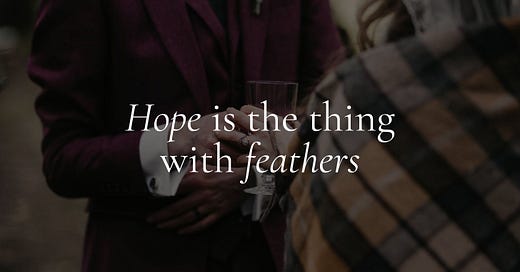


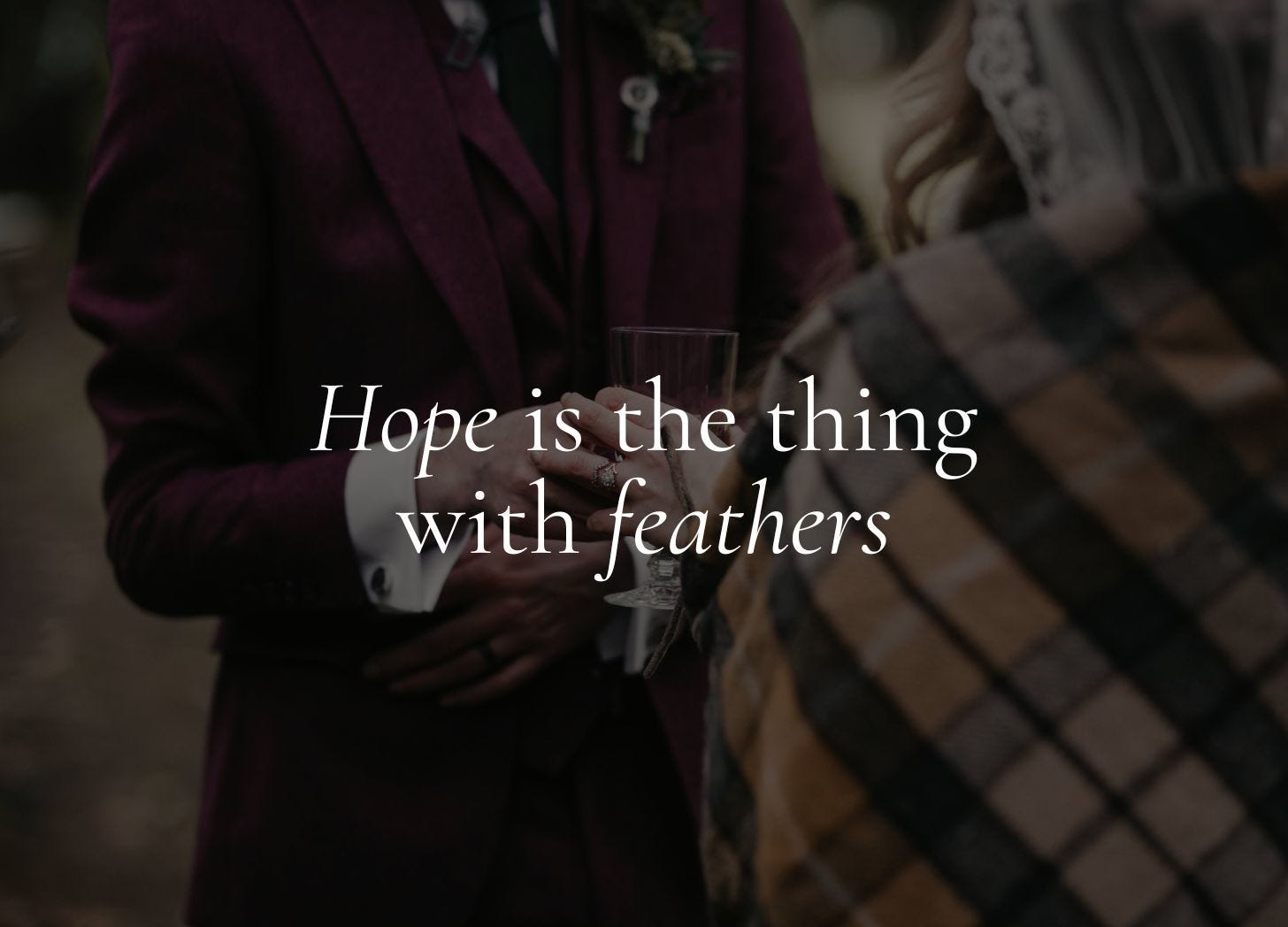
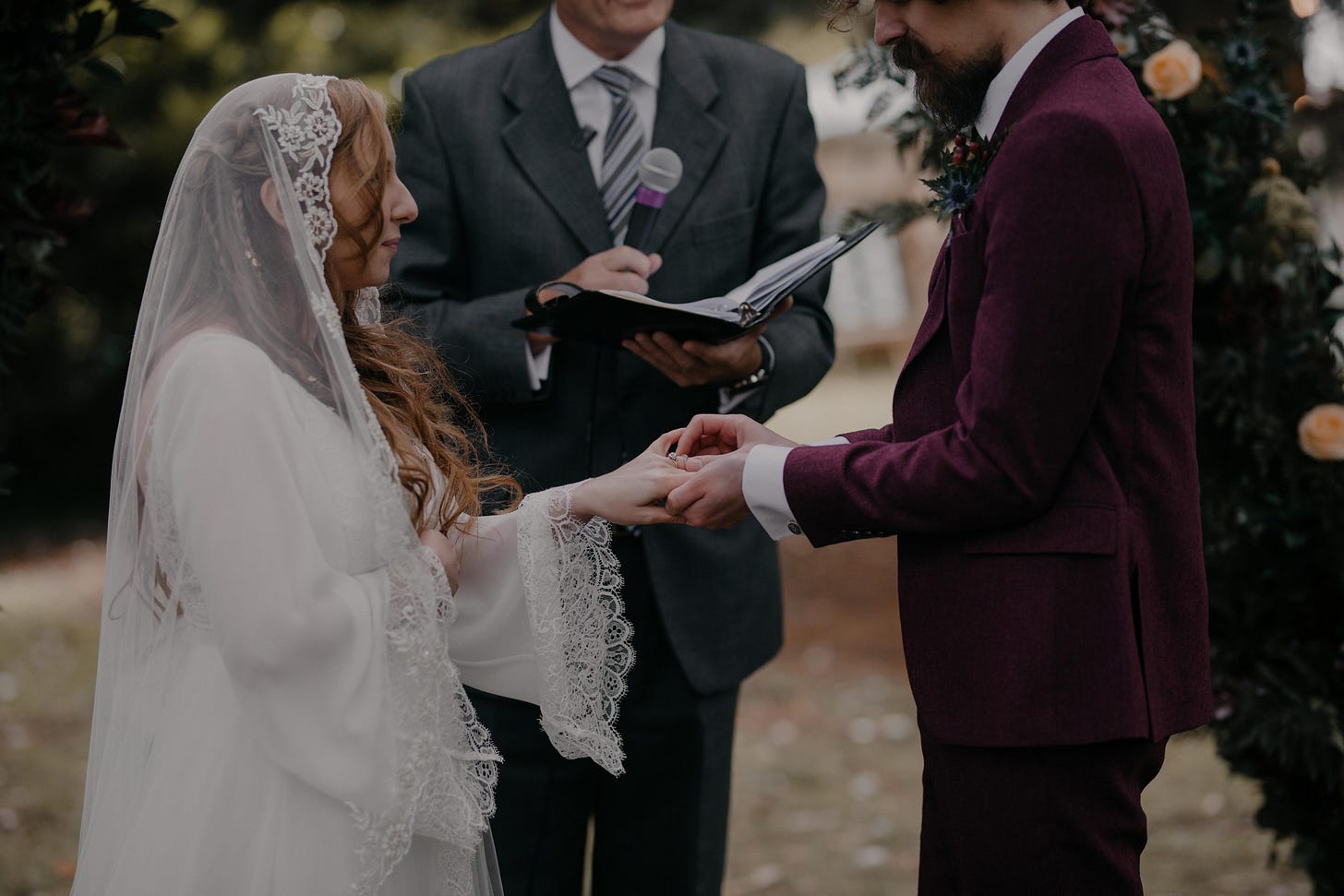
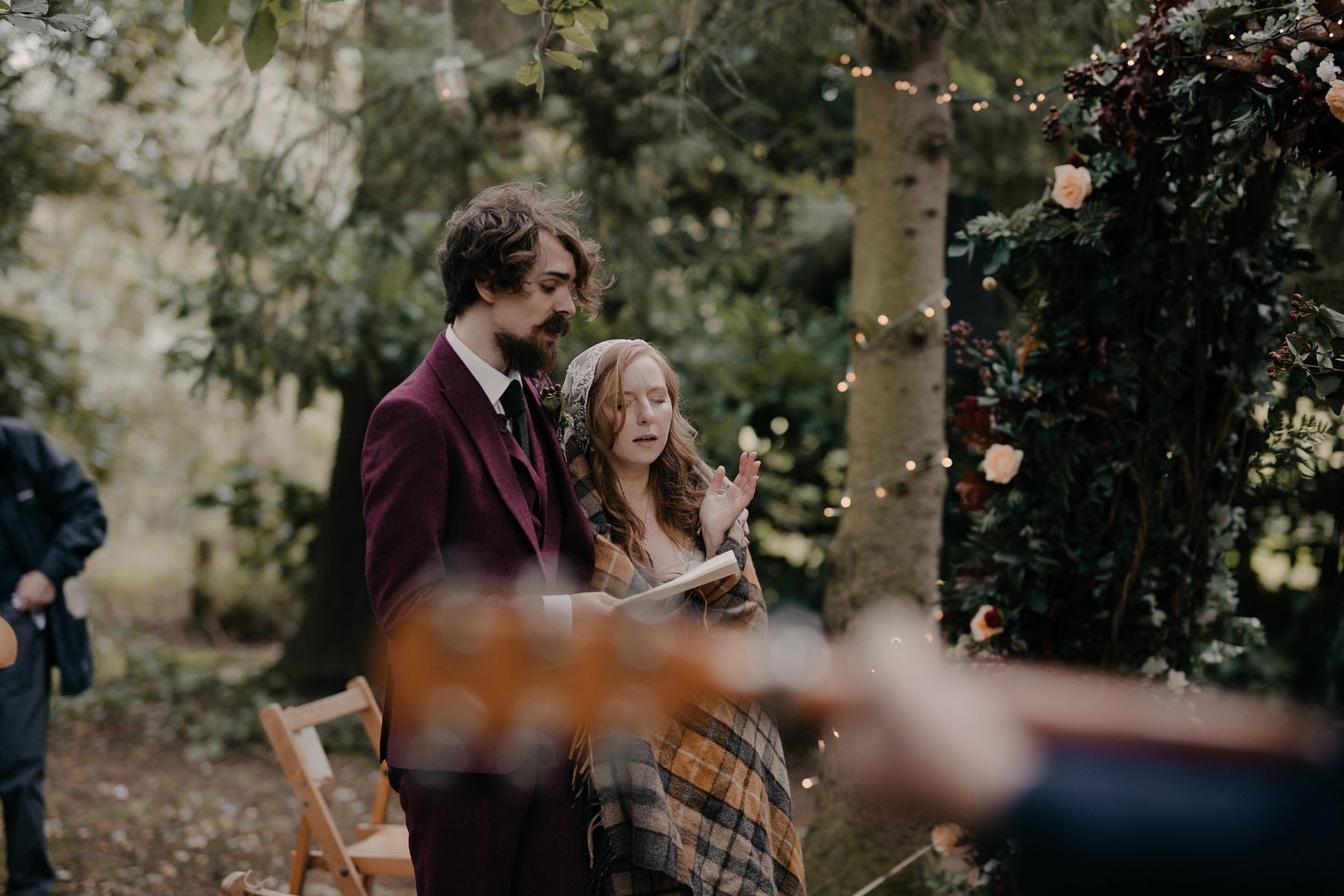
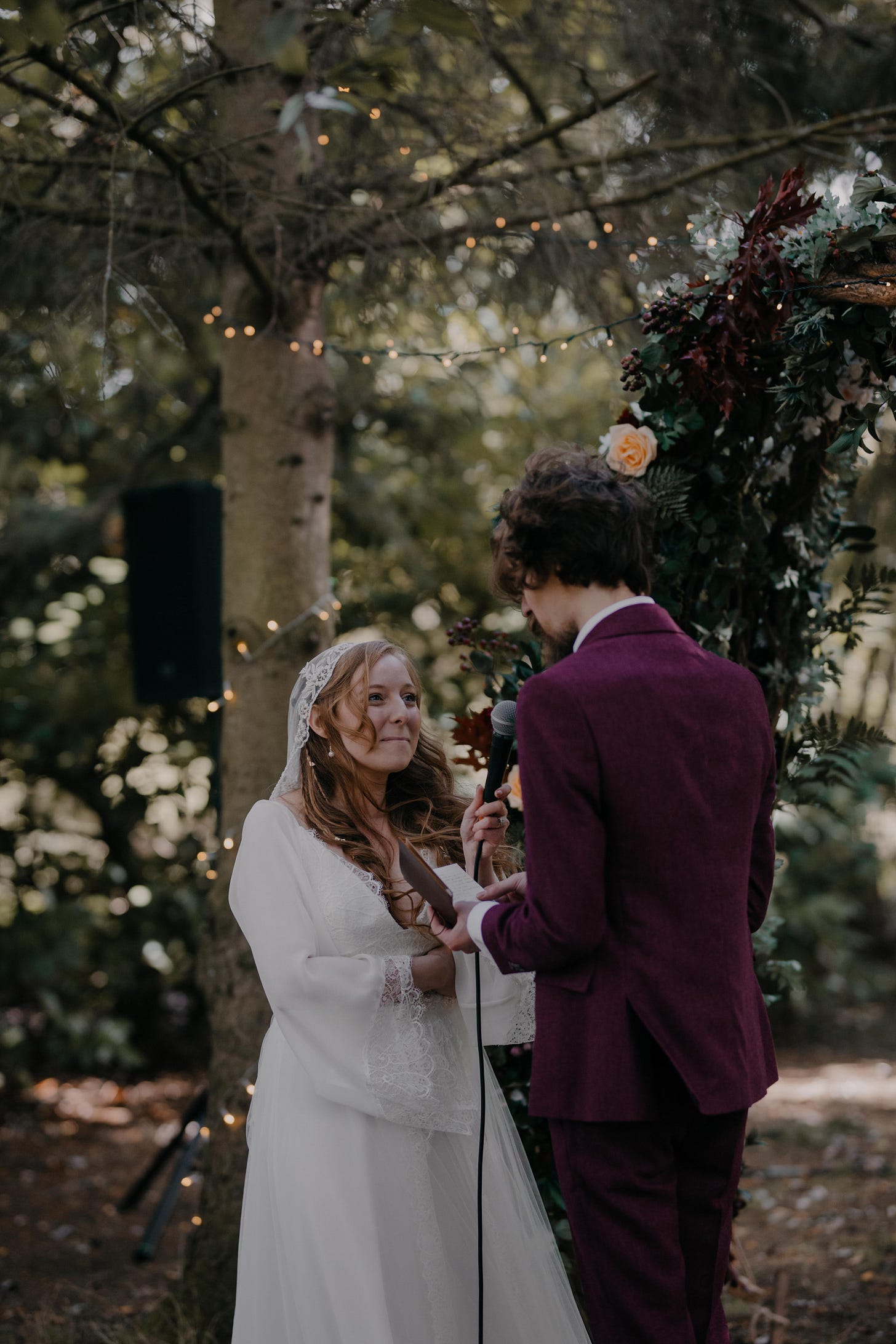
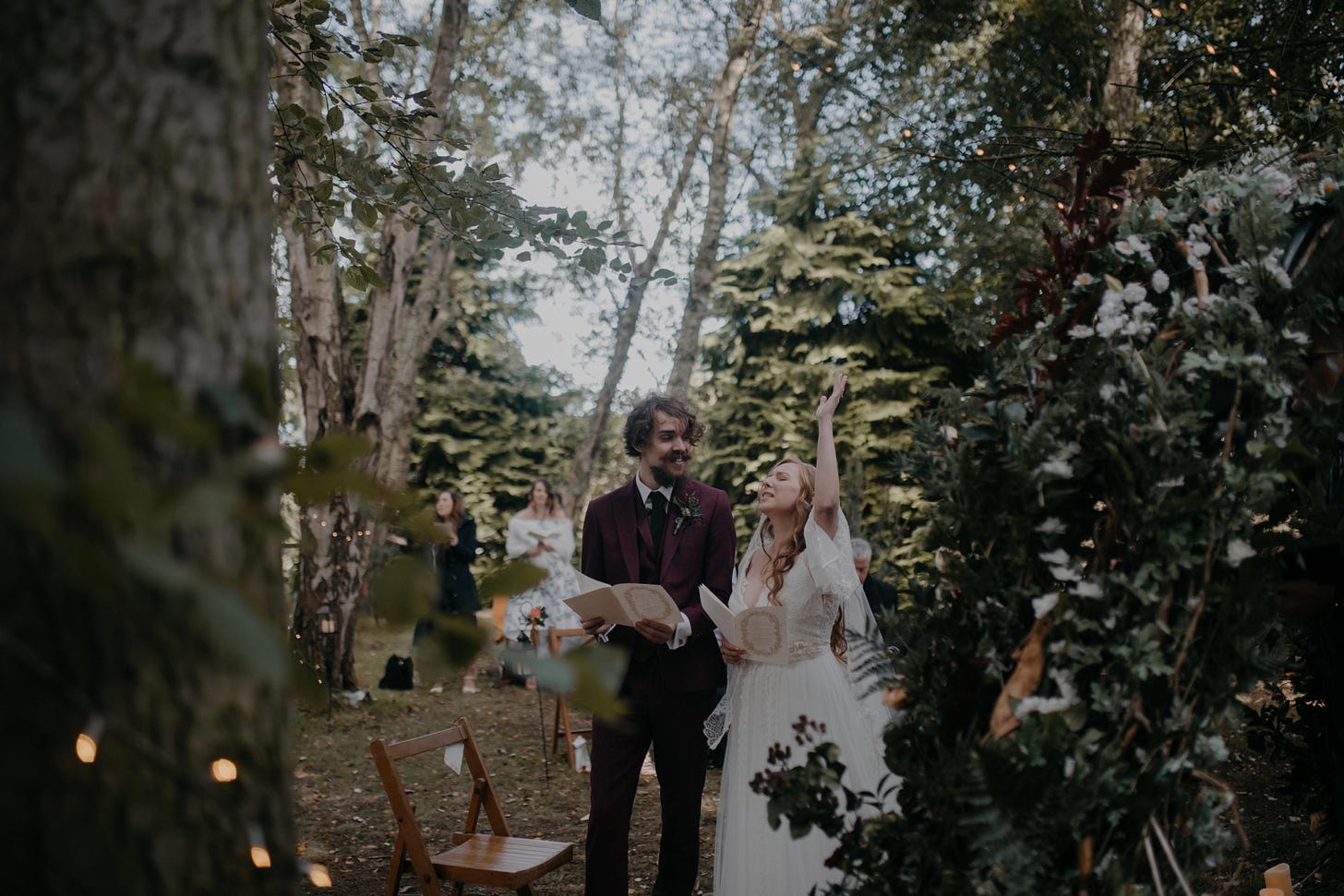
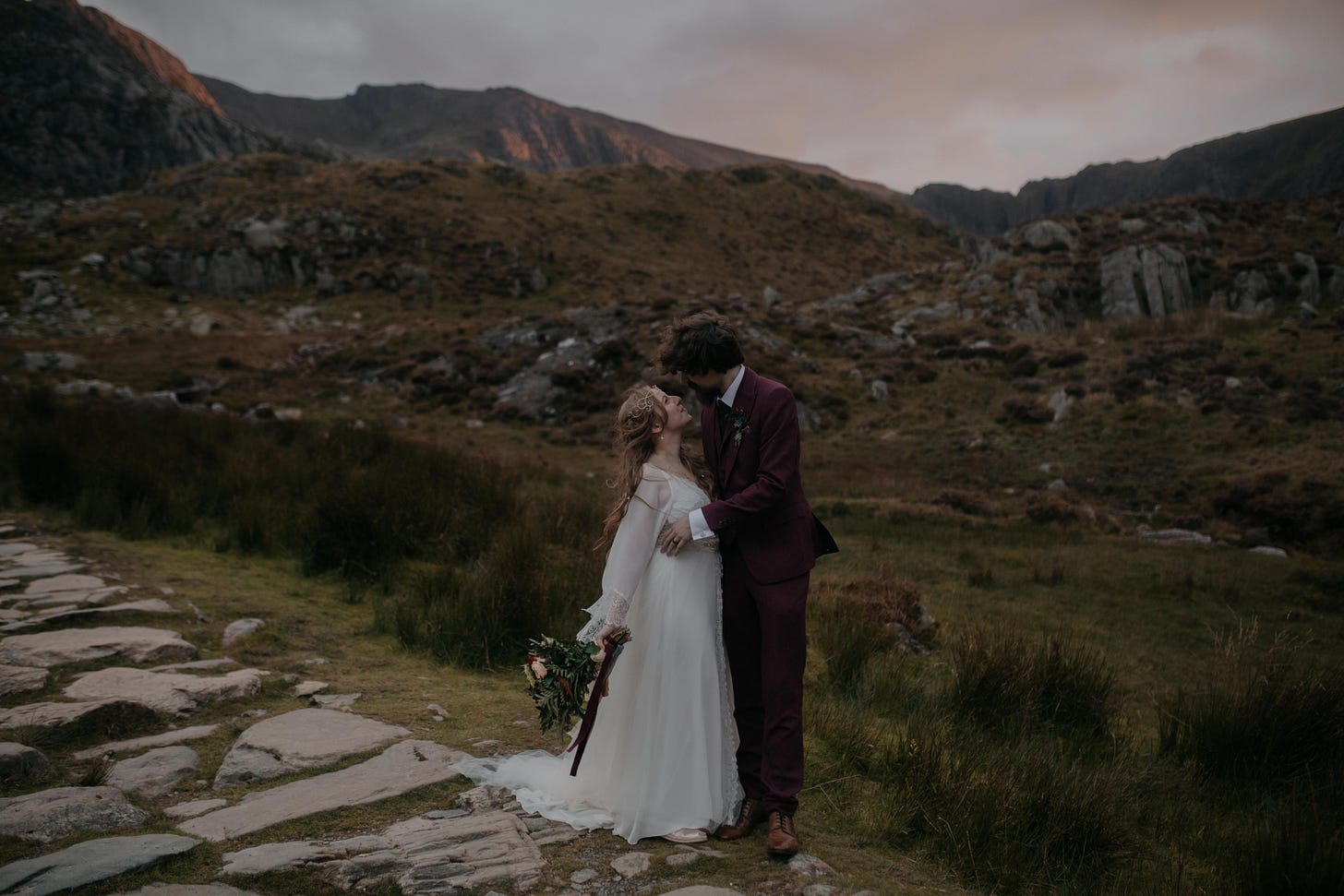


Thank you for sharing this piece of yourself. It was beautiful to read. I can relate to the grief of unmet expectations and unsatisfied desires. I often remind myself that I am not hoping in hope, or hoping in a certain outcome, but hoping in the unchanging character of God, who loves me and has good plans for me. I must also remind myself (especially in this past year, facing many griefs) that his good plans often look like pruning, sanctifying experiences that make me a little more like Him, and root out my selfish desires, to be replaced with a desire for Him. This has helped me, one step at a time, one moment of prayer at a time, and still not claiming to have full understanding of His thoughts and His ways (which are higher than ours, as the good book says).
This was beautiful, Christina. Thank you for being so honest about your experience and for the reminder that there's nothing shameful about our grief, regardless of its source. I also struggle with hoping and believing in a good God who wants to satisfy my desires when there is so much darkness in His world, but in this moment I choose to cling to His light.